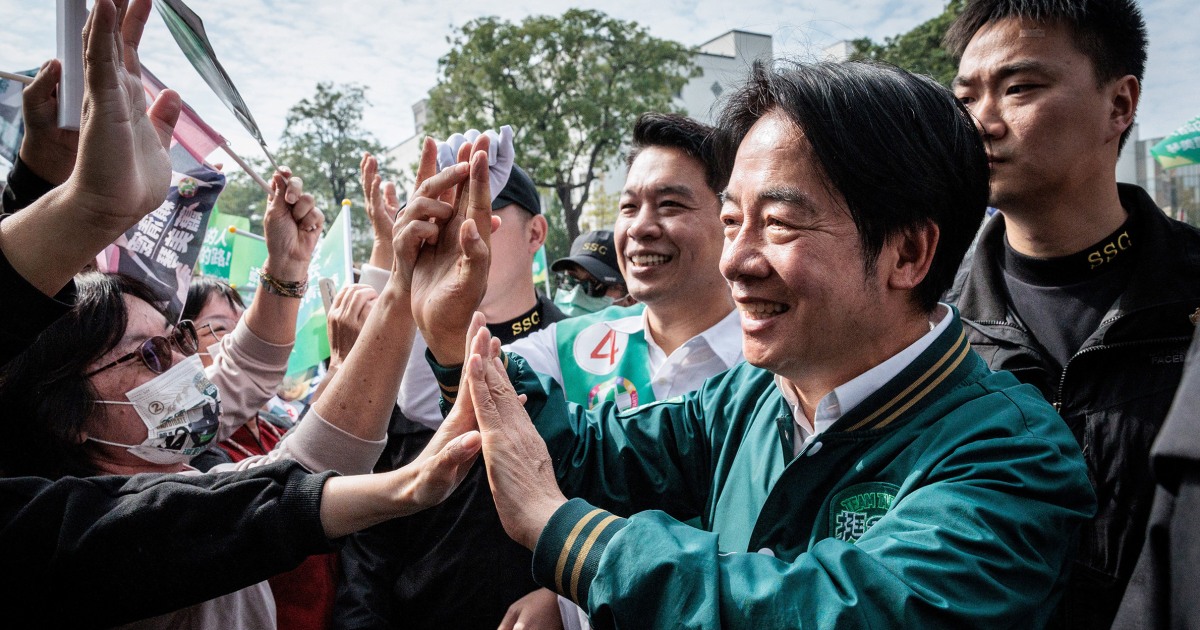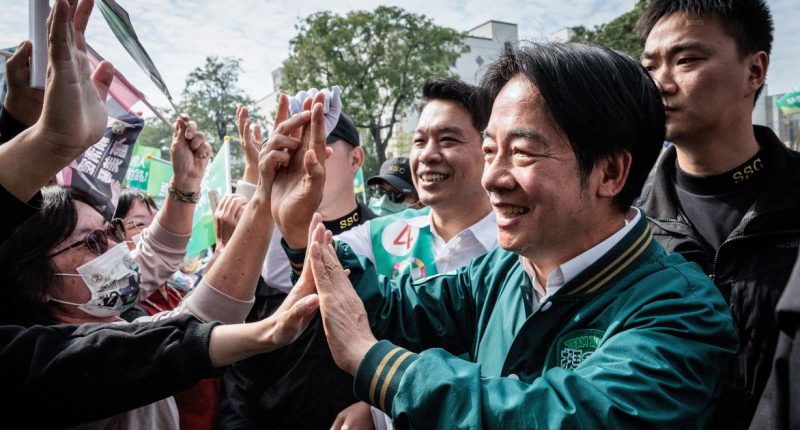
TAIPEI, Taiwan — 2024 is a year of pivotal elections, and not just in the United States.
Among the first up is Taiwan, a Beijing-claimed island that is one of the strongest democracies in Asia. On Saturday, voters here will elect a new president to replace Tsai Ing-wen, who is limited to two terms.
A key issue for the three men vying to succeed her, all of whom spoke with NBC News, is how they would approach relations with an increasingly aggressive China, which has not ruled out the use of force against Taiwan and has framed the election as “a choice between war and peace.”
This election is Taiwan’s opportunity to balance its position between the U.S., its most important international backer, and China, its largest trading partner, said Wen-Ti Sung, a nonresident fellow at the Atlantic Council who is based in Taipei.
“Having strong relations, close ties with both sides, it’s really caught in the middle,” he said.
What’s at stake?
Since the People’s Republic of China was founded in 1949 after a civil war, its ruling Communist Party has claimed sovereignty over Taiwan, where the defeated Nationalist forces set up a rival government. Under its long-standing “One China” policy, the U.S. recognizes Beijing as the sole legitimate government of China but maintains unofficial relations with Taipei, providing it with defensive weapons.
Most of Taiwan’s 24 million people are in favor of maintaining the status quo, neither formally declaring independence nor becoming part of China.
The status of Taiwan is among the biggest flashpoints in relations between the U.S. and China, the world’s two largest economies. While the U.S. says it has no preferred candidate in the Taiwan election, China has warned the U.S. against intervening in what it calls an “internal affair.”
In a sign of the heightened caution in Taiwan ahead of the election, on Tuesday the island’s defense ministry issued an air raid alert saying China had launched a satellite.
Beijing has kept up near-daily military pressure on Taiwan, with the island’s defense ministry saying earlier Tuesday it had detected 10 Chinese military aircraft and four Chinese military ships around the island in the previous 24 hours. The ministry also detected four Chinese balloons, the latest in a series that have been reported over the Taiwan Strait since last month.
Taiwan’s defense ministry said Saturday that the balloons were a threat to international aviation safety and an attempt to unnerve the Taiwanese public. Asked about the potential threat to aviation safety on Monday, Chinese Foreign Ministry spokesperson Mao Ning said she was “not aware” of the situation. The Chinese Defense Ministry did not respond to a request for comment.
Taiwan says China is also trying to influence the election through economic pressure and disinformation campaigns. China in turn has accused Taiwan’s governing Democratic Progressive Party (DPP), which is considered the least friendly to Beijing, of “hyping up the threat from the mainland” ahead of the election to gain voter support.
Sung described Taiwan’s security situation as “urgent but not immediate.”
“China certainly has geopolitical ambition towards Taiwan,” he said. “However, what exact timing Beijing is going to put its threat into actual military invasion, that remains something to be determined.”
The relationship with China is far from the only issue on the minds of Taiwanese voters, many of whom are more concerned with domestic matters such as education, employment, the cost of housing and growing income inequality.
“For the younger voters, those who are fresh out of university who are trying to find their first job or trying to buy their first house or first apartment, they still feel that the benefits of economic growth haven’t quite trickled down enough yet,” Sung said.
Source: | This article originally belongs to Nbcnews.com










